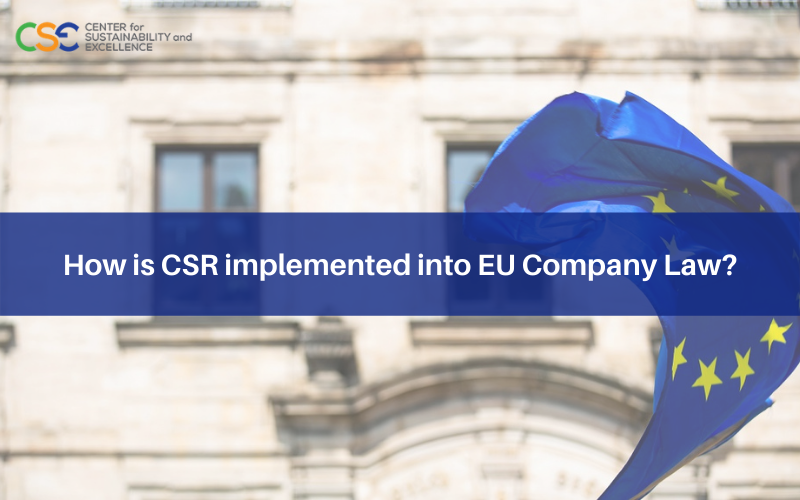Until recently, the adoption of Corporate Social Responsibility (CSR) policies was a matter of voluntary practice on the part of business. The role of CSR is very important to the European economy as it makes companies more sustainable and innovative, contributing to a more sustainable economy. Over the last years, the optional provisions tend to become more mandatory in order to promote and integrate CSR into business.
The crucial part is that most stakeholders support the implementation of a pan-European legislative initiative on corporate social and environmental actions, as it ensures equal competition for them across the EU.
Right now, EU law requires large companies to disclose non-financial information about their social and environmental impact under the Non-Financial Reporting Directive. Europe is committed to revise the Directive 95/2014 / EU, by imposing more transparency obligations on ESG issues for non-financial reporting. The revision will expand the scope and quality of company reports, ensuring that stakeholders have the information they need and strengthening the basis for sustainable investment.
There is need for asset managers to prepare themselves and comply with the new forthcoming provisions, such as the Disclosure Regulation and the Taxonomy Regulation. Investee companies will be able to achieve their objectives only if better non-financial information is available.
CSE’s three-day Certified Sustainability (ESG) Practitioner Program offered in February 18, 19, and 22 provides you step by step methodology to integrate CSR and ESG issues, maximizing your corporate performance. Executives from Fortune 500 companies, local governments and academia have trusted CSE and participated in our advanced training to become Certified Sustainability (ESG) Practitioners and earn a unique recognition in the Sustainability and CSR field.







